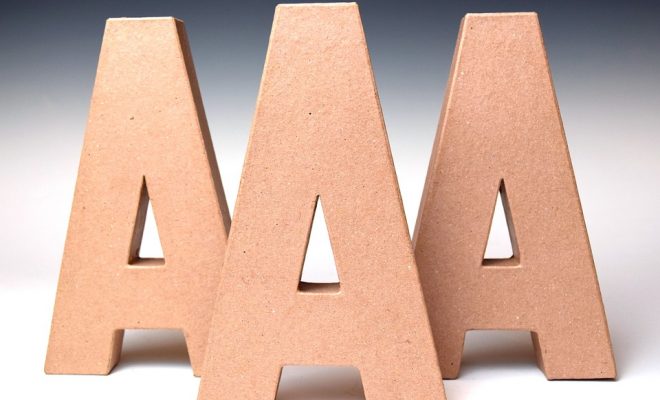The 10 Professional Standards All Effective Teachers Must Meet

You’re looking to become a teacher, and you want to be a pretty good one that that. Then you should probably know about the InTASC standards. The Interstate New Teacher Assessment and Support Consortium (InTASC) has identified 10 standards of the knowledge, dispositions, and skills expected of effective teachers. They’ve developed a detailed list of professional standards for the licensing of new teachers, describing what new teachers should know, how they should perform, and the necessary disposition for effective teaching.
The standards transcend all subject areas and grade levels. And most colleges and universities use the InTASC standards to voice their expectations required for new teachers.
Here’s a brief description of the ten InTASC standards you need to know, so that you can be an effective teacher and shape hundreds of lives over the course of your career:
1. Learner development. The teacher understands how students learn and how they develop. Teachers apply this understanding to each student in the context of the student’s cognitive, linguistic, social, emotional, and physical abilities, because they understand that students’ abilities differ. Teachers respect these student differences and leverage differences to allow all students to reach their full potential, focusing on and drawing out their individual strengths. Teachers actively take responsibility for their students’ growth and development, receiving input from and collaborating with families, colleagues, and other professionals.
2. Learning differences. The teacher understands individual differences in culture, language, and socioeconomic status of his or her students, incorporating them in teaching to create inclusive learning plans. Teachers use this understanding to adapt their lesson plan content and delivery to ensure that they promote and encourage diversity, particularly for students who have special needs. Teachers respect these individual differences, believe that all students can achieve at high levels, make students feel valued, and assist students in realizing their full potential.
3. Learning environments. The teacher understands how to develop and provide supportive learning environments for his or her students. Teachers apply this understanding to create activities that facilitate both individual and collaborative learning, while also promoting positive social interaction between students of different backgrounds. Teachers value their students’ input, allowing them opportunities to provide input, and listening attentively and responsively. Teachers support students in developing self-motivation, assisting them with problem solving, decision making, and exploration within a safe and validating environment. Teachers also engage appropriately with local and global communities to provide diverse learning environment opportunities for all students.
4. Content knowledge. The teacher understands the central concepts of the subject or subjects that he or she is required to teach, with an in-depth understanding of how to make the content accessible and approachable to all students. Applying this standard, teachers commit to keeping up-to-date and relevant in their content areas, in both local and global contexts, incorporating and promoting cross-cultural understanding. Teachers encourage and appreciate students’ critical analyses and ensure that students are appropriately challenged with adequate resources to support their learning. And teachers are sensitive to the potential for bias, actively seeking to address it when covering any learning content.
5. Application of content. The teacher understands how to apply and connect different concepts within the learning content, using this understanding to engage students and to help them apply these concepts to the real world. Teachers also use this understanding to draw from content material outside their own area of concentration, helping students to understand how their education as a whole is composed of interrelated components. Including local and global examples, teachers draw on culturally and socially diverse perspectives and collaborate with other teachers to provide an example that encourages students to explore, think critically, and develop their own innovative skills.
6. Assessment. The teacher understands and applies various methods of assessment that encourage and support the growth of his or her students. Using this understanding, teachers can appropriately modify assessments to make them culturally or ethnically relevant or to allow the adequate testing of students with varying abilities in English and of students with individual needs. Ethical application of these assessment methods allows students to understand and reflect on their own growth and learning. Providing descriptive feedback on student progress encourages students to focus on areas of difficulty where appropriate.
7. Planning for instruction. The teacher understands the curriculum goals and standards required of his or her students and appropriately uses knowledge of content areas and cross-disciplinary skills to plan learning that will allow each student to achieve these goals and standards. Effective teachers adapt and plan effective instruction that will allow learners of varying skill levels and at various levels of development to leverage their own strengths to achieve what is required of them. Applying this standard also involves the input of students’ family members, the community, and professionals both inside and outside education, to ensure the highest possible levels of classroom achievement.
8. Instructional strategies. The teacher understands how to encourage students to use and develop a deep understanding of content and connections between content using a variety of instructional strategies. Allowing students to develop their critical thinking, problem-solving, and research abilities, and allowing them to perform learning tasks independently as well as with the teacher, are all applications of this standard. Teachers plan to accommodate students from diverse backgrounds and with a diverse range of abilities, incorporating and encouraging the use of various technologies that will support students in retrieving or assessing the required information. Teachers can also adapt exercises and materials to cope with new information received from students during their research, updating and improving their own knowledge base.
9. Professional learning and ethical practice. The teacher understands the importance of ongoing personal reflection regarding teaching and lesson planning methods, personal and teaching goals, as well as continued striving for development. Applying Standard 9, teachers perform frequent self-evaluation, and encourage feedback from students, students’ families, and colleagues or supervisors. Teachers must see themselves as continual learners, always seeking new opportunities to further their knowledge, particularly of their content base.
10. Leadership and collaboration. The teacher seeks out and assumes leadership roles that match his or her skills. Teachers who apply Standard 10 understand the importance of collaboration and demonstrate this understanding to their students. They take direct responsibility for the success of their learners, working with them to help them achieve their potential. And this collaborative spirit extends to the students’ families and community; when teachers actively seek opportunities for growth by engaging with other education professionals and accessing and providing support where required, the school as a whole is empowered to move forward in achieving the school’s mission and goals.
If you’re a prospective teacher, or even a more experienced teacher, I’d be happy to hear from you. Which do you think is the most important InTASC standard for success in the educational profession, and why do you think this? Leave your thoughts in the comments.





